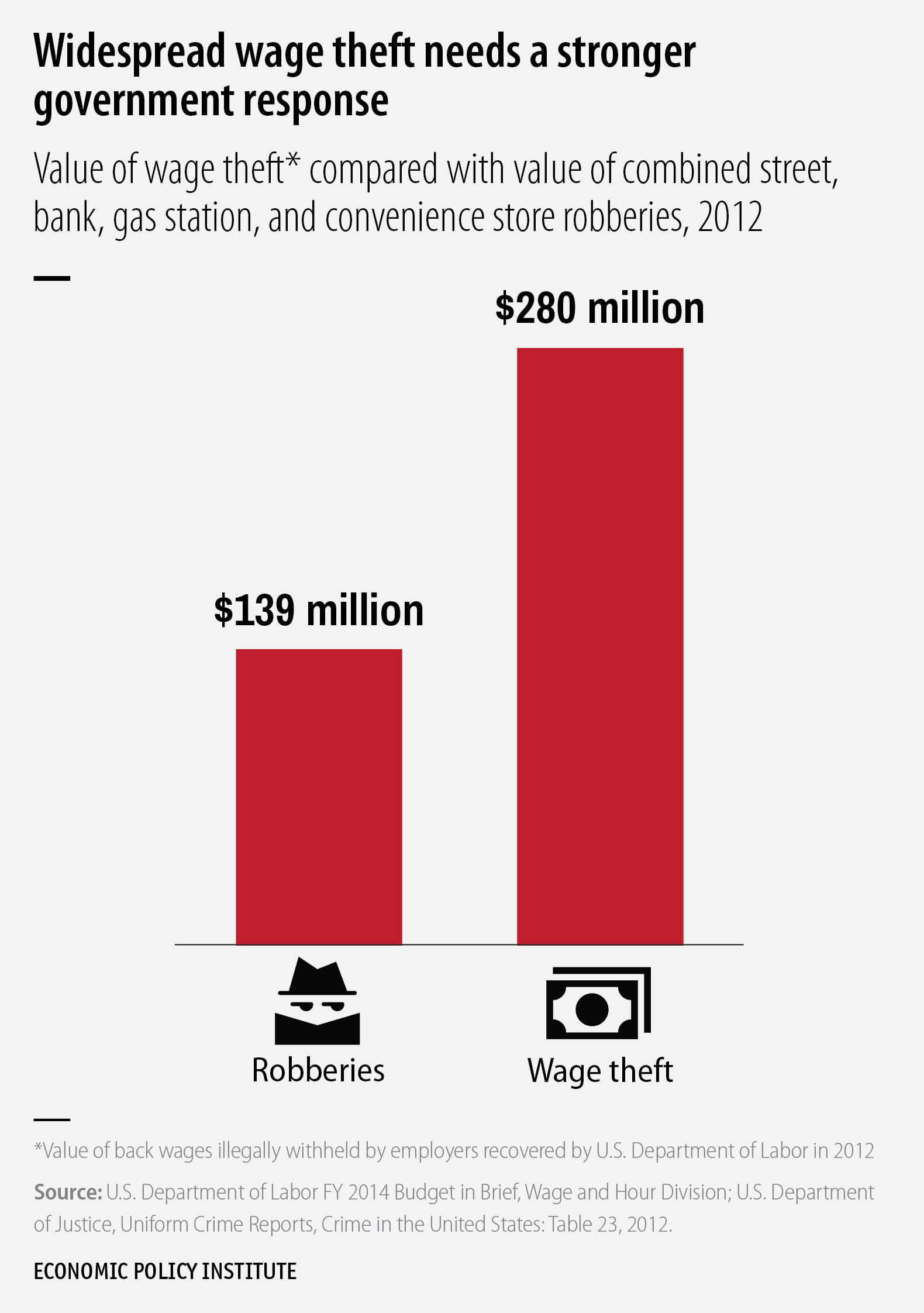Wage theft is a far bigger problem than bank robberies, convenience store robberies, street and highway robberies, and gas station robberies combined. Employers steal billions of dollars from their employees each year by working them off the clock, by failing to pay the minimum wage, or by cheating them of overtime pay they have a right to receive. Survey research shows that well over two-thirds of low-wage workers have been the victims of wage theft, but the governmental resources to help them recover their lost wages are scant and largely ineffective.
Few local governments have any resources or staff to combat wage theft, and several states have closed down or so severely cut back their labor departments that workers are left mostly unprotected and vulnerable to exploitation. The U.S. Department of Labor (DOL) is the one agency that brings substantial resources to the effort to prevent and remedy wage theft, but its total staff of wage and hour investigators, about 1100 in all, is responsible for securing compliance from more than seven million employers. Nevertheless, in Fiscal Year 2012, DOL recovered $280 million in back pay for 308,000 workers. That amount – a small fraction of the total wage theft nationwide – far exceeded the total lost to criminals in street and highway, bank, gas station and convenience store robberies in 2012.

